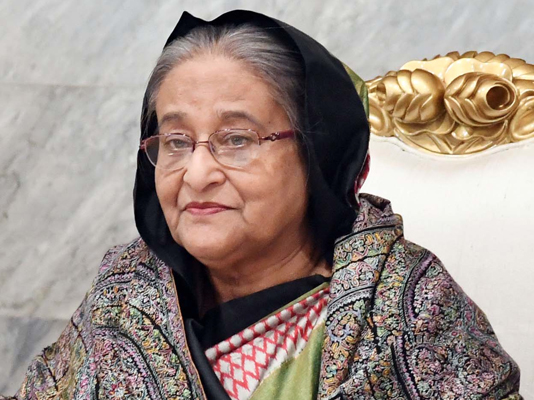DHAKA, Dec 30, 2019 (BSS) – The cabinet today approved the draft of “The Marine Fisheries Act, 2019, keeping three-year jail term and Taka five crore as the highest penalty for foreign vessels for fishing in Bangladesh territory.
The approval was given in the weekly cabinet meeting with Prime Minister Sheikh Hasina in the chair.
“The cabinet gave its final nod to The Marine Fisheries Act, 2019 keeping many penal provisions of punishment for violation of the law in fishing in Bangladesh territory both by local and foreign vessels,” Cabinet Secretary Khandker Anwarul Islam told the media at the Secretariat here this afternoon.
He added that the proposed law provides for a three-year jail term and Taka five crore as the highest penalty for foreign vessels for fishing in Bangladesh territory, which was three-year jail term and Take one lakh fine in the existing law.
The cabinet also proposed incorporating the provision of mobile court operation to stop breaching the law, he said, adding, “In many cases, giving on-the-spot punishment yields good result and leaves good impact on the people.”
The draft law was approved to replace “The Marine Fisheries Ordinance, 1983” as part of the move to make the ordinances promulgated during the military rule into laws and translate those into Bangla in accordance with the High Court, he said.
He said that nine very important and specific matters such as how vessels will be look like, getting license in every two years, how the commercial trawlers will be imported have been included in the law.
“The cabinet suggested issuing license for the vessels in every two years instead of the existing provision of one year,” he continued.
Besides, he said, the cabinet approved in principle the drafts of Bangabandhu Sheikh Mujibur Rahman University Act, 2019, Sunamganj Science and Technology University Act, 2019, and Bangladesh Energy Regulatory Commission (Amendment) Act, 2019.

“Bangabandhu Sheikh Mujibur Rahman University in Kishoreganj and Sunamganj Science and Technology University would be like any other university,” Anwarul said, adding that when the two universities open, the number of public universities in the country will be 50.
He said the meeting also gave final approval to the draft of “Bangladesh Energy Regulatory Commission (Amendment) Act, 2019″ saying that necessary changes can be made in the fixed tariff set by the commission one or more times in a fiscal year”
As per the existing law, changes can be made in the fixed tariff once in a fiscal year, he said.
The cabinet secretary said the meeting also approved the draft proposal for turning the world’s seventh largest “Four-Tier National Data Centre” project into a “Bangladesh Data Centre Company Limited” alongside the company’s Memorandum of Association (MoA), and Articles of Association (AoA).
Anwarul said that the proposal of forming the company was given to ensure uninterrupted and efficient operation and maintenance to increase the standard of services. “The data centre will help preserve data in a safer way and stop dependency on the foreign data centre and thus it can save Taka 353 crore in a year,” he said.
The cabinet approved the proposal for forming “Startup Bangladesh Limited Company” to give financial assistance to encourage new entrepreneurs in innovating technology based products and their development, providing working places and necessary training, said the cabinet secretary.
“The government will give financial assistances as equity,” he said.
Anwarul added that it also approved the proposal for ratifying the two agreements on extradition and mutual legal assistance in criminal matters signed between Bangladesh and South Africa.
The cabinet approved the proposal for inclusion of Bangladesh in the protocol relating to Madrid Agreement Concerning the International Registration of Marks, 1989.
The cabinet secretary said, “It is urgently necessary to join the Madrid protocol to create international market for the Bangladeshi ICT products and services, and ensure export alongside attracting foreign investment in ICT sector in Bangladesh.”



